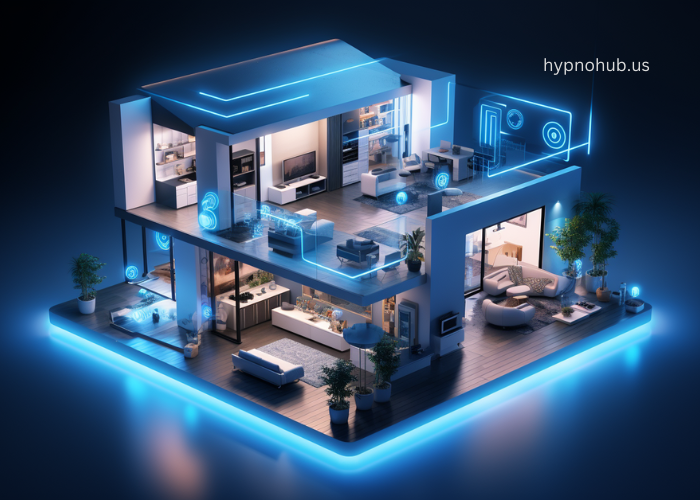In the 21st century, the concept of home has evolved beyond a mere shelter. With the advent of smart technology, homes have transformed into hubs of innovation and convenience. Smart home devices, ranging from intelligent thermostats to automated lighting systems, are revolutionizing the way we live, making our daily routines easier, more efficient, and even more enjoyable.
The Rise of Smart Technology
Smart technology has seen exponential growth over the last decade, driven by advancements in artificial intelligence (AI), the Internet of Things (IoT), and connectivity solutions. According to industry reports, the global smart home market is projected to surpass $200 billion by 2025. This surge reflects the increasing demand for devices that seamlessly integrate with our lifestyles.
Enhancing Comfort and Convenience
One of the most significant benefits of smart home devices is their ability to enhance comfort and convenience. Smart speakers like Amazon Echo or Google Nest allow users to control various aspects of their home with voice commands, from adjusting the thermostat to playing music. Similarly, robotic vacuum cleaners, such as those by iRobot, automate cleaning tasks, saving time and effort.
Lighting systems have also undergone a transformation. Smart bulbs can change color, dim, or switch on and off according to preset schedules or occupancy, creating a customized ambiance while saving energy.
Improving Energy Efficiency
Energy efficiency is a cornerstone of modern smart home technology. Smart thermostats, such as those from Nest or Ecobee, learn users’ habits and adjust heating and cooling settings accordingly. This not only ensures optimal comfort but also reduces energy consumption and lowers utility bills.
Solar-powered smart devices and home energy monitoring systems further empower homeowners to minimize their carbon footprint. By providing real-time insights into energy usage, these devices encourage more sustainable living practices.
Strengthening Security and Safety
Home security has seen a significant upgrade with the integration of smart technology. Devices like video doorbells, smart locks, and security cameras provide real-time monitoring and alerts, enhancing safety for residents. Many systems can be managed remotely through mobile apps, allowing homeowners to check in on their property no matter where they are.
In addition to security, smart smoke detectors, carbon monoxide alarms, and leak sensors ensure the safety of the household by providing instant alerts and, in some cases, direct notifications to emergency services.
Challenges and Considerations
While smart home devices offer numerous benefits, they also come with challenges. Privacy and security concerns are paramount, as interconnected devices can be vulnerable to cyberattacks. Manufacturers and users must prioritize robust encryption, regular software updates, and secure passwords to mitigate these risks.
Additionally, the cost of setting up a fully integrated smart home can be prohibitive for some, although prices are gradually becoming more accessible as technology advances.
The Future of Smart Homes
The future of smart homes is incredibly promising. Innovations such as AI-driven personal assistants, enhanced interoperability between devices, and the integration of augmented reality (AR) are on the horizon. As technology becomes more sophisticated, homes will not only respond to our commands but anticipate our needs, creating a truly intuitive living environment.
Conclusion
Smart home devices are undeniably transforming the way we live, offering unparalleled convenience, efficiency, and safety. As these technologies continue to evolve, they promise to make our homes smarter and our lives better. Embracing this revolution is not just about adopting new gadgets but about reimagining what it means to live in a modern, connected world.





